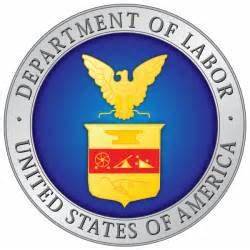Increases Apply to Civil Monetary Penalties Assessed After January 2, 2018
The U.S. Department of Labor (DOL) has published a final rule adjusting .
forinflation the civil monetary penalties assessed for violations of a number of federal labor laws. The rule increases penalties for employers that do not comply with certain requirements under the federal Fair Labor Standards Act (FLSA), the Family and Medical Leave Act (FMLA), the Employee Retirement Income Security Act (ERISA), and the Occupational Safety and Health Act (OSH Act), among other laws. The increases generally apply to civil penalties assessed after January 2, 2018, whose associated violations occurred after November 2, 2015.
Key Penalty Increases
Penalty increases that may be of particular interest to employers include:
- OSH Act Posting. Violations of the OSH Act’s posting requirement are subject to a maximum penalty of $12,934 for each violation (formerly $12,675).
- Form 5500. Failure or refusal to file an annual report (Form 5500) with the DOL is subject to a penalty of up to $2,140 per day (formerly $2,097);
- FLSA Requirements. Repeated or willful violations of the FLSA’s minimum wage or overtime pay requirements are subject to a penalty of up to $1,964 per violation (formerly $1,925);
- SBCs. Failure to provide a Summary of Benefits and Coverage (SBC) is subject to a penalty of up to $1,128 per failure (formerly $1,105);
- FMLA Posting. Willful violations of the FMLA’s posting requirement are subject to a penalty not to exceed $169 for each separate offense (formerly $166) (note: covered employers must post this general notice even if no employees are eligible for FMLA leave); and
- Employer CHIP Notice. Failure to provide employees with an Employer Children’s Health Insurance Program (CHIP) Notice is subject to a penalty of up to $114 per day per violation (formerly $112).
Click here to read the final rule, which features additional penalty increases, in its entirety. The DOL’s summary chart also highlights many of the changes




